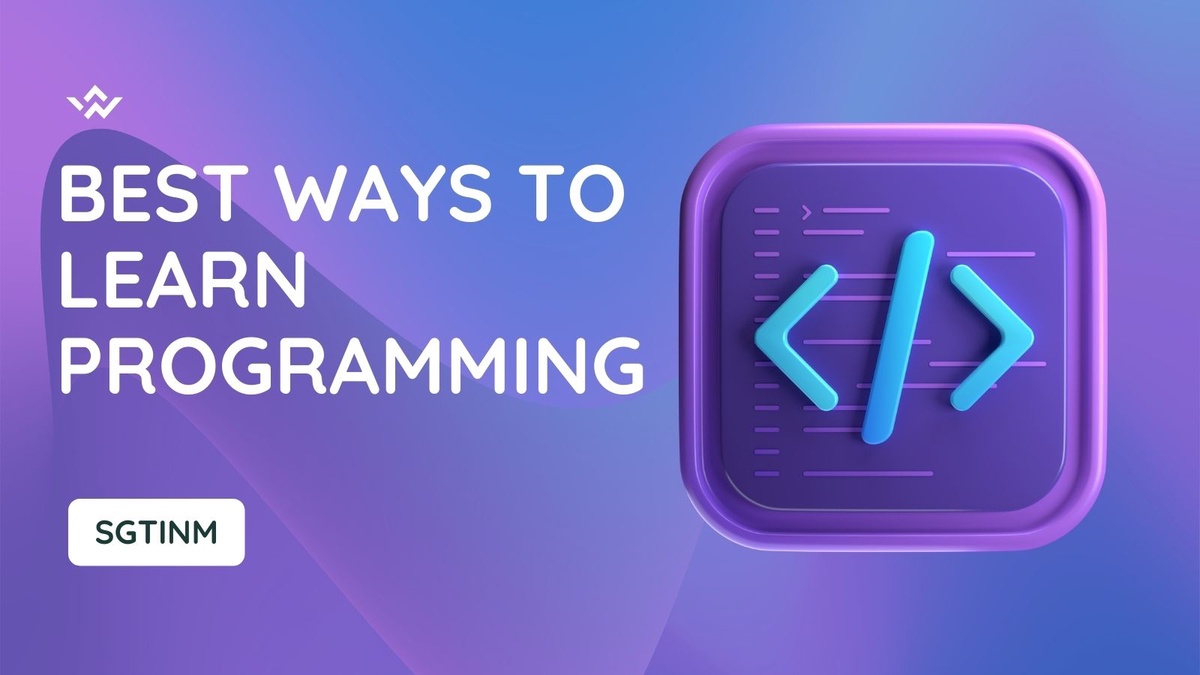Identify the most effective learning methods for programming:
-
Hands-on practice: One of the most effective ways to learn programming is through hands-on practice. This involves working on programming exercises and projects that involve applying the concepts and techniques learned in programming courses. Hands-on practice helps learners develop problem-solving skills and gain practical experience in programming.
-
Active learning: Active learning involves engaging learners in the learning process through activities such as discussion, group work, and problem-solving. This method can be particularly effective for programming education, as it allows learners to work through coding problems and solutions together.
-
Visual aids: Visual aids such as diagrams, charts, and infographics can be helpful in explaining complex programming concepts. Visual aids can also help learners understand the structure of code and how different elements of code relate to each other.
-
Online resources: Online resources such as coding forums, video tutorials, and online courses can be effective for self-paced learning. These resources can provide learners with access to a wide range of programming materials and allow them to learn at their own pace.
-
Gamification: Gamification involves incorporating game-like elements into programming education, such as rewards, badges, and leaderboards. This approach can be effective for motivating learners and encouraging them to continue practicing and learning programming.
It is important to note that different learners may respond better to different learning methods. Therefore, it is important to use a combination of these methods and to adapt the learning experience to meet the needs of individual learners.

Explore the role of practice and feedback in programming learning:
Practice and feedback are crucial components of programming learning. Here are some ways in which they play a key role:
-
Reinforcement of concepts: Practice allows learners to reinforce programming concepts and techniques that they have learned. Through practice, learners can apply what they have learned in a meaningful way and solidify their understanding of programming concepts.
-
Developing problem-solving skills: Programming is all about problem-solving. Through practice, learners can develop their problem-solving skills by working through coding problems and finding solutions. This helps them become more proficient in programming and better equipped to solve complex problems.
-
Providing motivation: Practice can be motivating, especially when learners see the results of their efforts. Seeing progress can encourage learners to continue practicing and learning programming.
-
Receiving feedback: Feedback is important in programming learning because it allows learners to understand where they are making mistakes and how they can improve. Feedback can come from instructors, peers, or even automated systems that provide feedback on code quality.
-
Improving coding skills: Practice and feedback go hand in hand when it comes to improving coding skills. Learners can practice coding and receive feedback on their work, which can help them identify areas where they need to improve and adjust their approach accordingly.
It is important to note that feedback should be timely, specific, and constructive in order to be effective. Additionally, practice should be focused on challenging tasks that allow learners to apply what they have learned and develop their skills. By combining practice and feedback, learners can improve their programming skills and become more proficient programmers.
Investigate the use of online resources and tools for programming learning:
Online resources and tools have become increasingly popular for programming learning due to their accessibility, flexibility, and affordability. Here are some key aspects to consider when investigating the use of online resources and tools for programming learning:
-
Types of online resources: Online resources for programming learning can include video tutorials, online courses, forums, blogs, and coding challenges. Each type of resource can offer different benefits, depending on the learner's goals and learning style.
-
Quality of resources: When selecting online resources for programming learning, it is important to consider the quality of the resource. Look for resources that are reputable, up-to-date, and have positive reviews from learners.
-
Cost: Online resources for programming learning can range from free to expensive. It is important to consider the cost of the resource and whether it is worth the investment based on the learner's goals and budget.
-
Interactivity: Some online resources and tools offer interactive features that can enhance the learning experience. For example, online coding challenges can provide learners with hands-on experience and immediate feedback on their work.
-
Flexibility: Online resources and tools offer flexibility in terms of when and where learners can access them. This can be particularly beneficial for learners with busy schedules or those who prefer to learn at their own pace.
-
Support: It is important to consider the level of support available when using online resources and tools. This can include technical support, access to instructors or mentors, or support from a community of learners.
It is also important to note that online resources and tools should not be used as a replacement for traditional programming education, but rather as a supplement. A combination of online resources and tools, traditional classroom-based learning, and hands-on practice can provide a well-rounded programming education.
Analyze the role of project-based learning in programming education:
Project-based learning is a teaching approach that focuses on student-centered, inquiry-based learning. In programming education, project-based learning involves students working on projects that require them to apply programming concepts and skills to solve real-world problems. Here are some ways in which project-based learning can play a key role in programming education:
-
Emphasizes practical application: Project-based learning allows learners to apply programming concepts and skills to real-world problems, helping them understand how programming can be used in practical situations.
-
Develops problem-solving skills: Projects require learners to identify problems, develop solutions, and implement those solutions through coding. This helps learners develop critical thinking and problem-solving skills that are essential in programming.
-
Fosters collaboration: Project-based learning often involves group work, which allows learners to work together, share ideas, and support each other. This helps learners develop teamwork and communication skills that are essential in programming and in the workplace.
-
Encourages creativity: Projects often require learners to come up with unique solutions to problems, which encourages creativity and innovation.
-
Increases motivation: Working on projects can be more motivating than traditional classroom-based learning because learners see the direct application of what they are learning. Projects can also be tailored to the learner's interests, which can increase motivation and engagement.
-
Builds a portfolio: Projects can serve as a tangible representation of the learner's skills and knowledge in programming. This can be helpful when seeking employment or further education in the field.
It is important to note that project-based learning should be balanced with other teaching methods, such as lectures and hands-on practice, to provide a well-rounded programming education. Additionally, projects should be carefully designed to align with learning goals and provide appropriate challenges for the learners.
Investigate the importance of collaboration in programming education:
Collaboration is essential in programming education for several reasons. Here are some key aspects to consider when investigating the importance of collaboration in programming education:
-
Sharing knowledge and skills: Collaboration allows learners to share their knowledge and skills with others. This can be particularly beneficial for learners who may have strengths in different areas of programming.
-
Enhancing problem-solving skills: Collaborating on programming projects allows learners to work together to solve complex problems. This encourages learners to think critically, communicate effectively, and develop problem-solving skills that are essential in programming and in the workplace.
-
Exposing learners to diverse perspectives: Collaboration allows learners to work with others from different backgrounds and with different experiences. This exposure to diverse perspectives can broaden learners' understanding of programming and lead to innovative solutions.
-
Encouraging accountability: Collaborating on programming projects requires learners to take responsibility for their contributions to the project. This encourages learners to be accountable for their work and to develop a strong work ethic.
-
Preparing learners for the workplace: Collaboration is an essential skill in the workplace. By collaborating on programming projects, learners develop teamwork and communication skills that are highly valued by employers.
-
Providing a supportive learning environment: Collaborating with peers can provide a supportive learning environment where learners can ask questions, receive feedback, and work through problems together.
It is important to note that collaboration should be balanced with individual work in programming education. Individual work allows learners to develop their own problem-solving skills and to take ownership of their learning. Additionally, collaboration should be structured to ensure that all learners are actively participating and that everyone has an opportunity to contribute to the project.


No comments yet